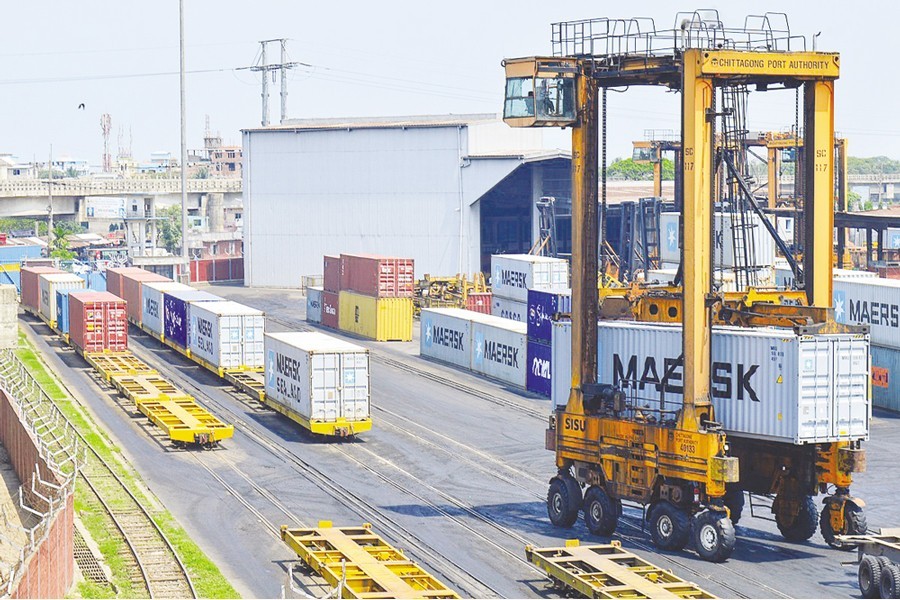
Published :
Updated :

CHATTOGRAM: Chittagong port, the prime seaport of the country, earned a record Tk 35.85 billion in the last fiscal year of 2021-2022 (FY 22).
After paying all the expenditure including charges, taxes and salaries of staff, the net income stood at Tk 10.75 billion.
In the immediate past FY 2020-2021, the income of the port was Tk 30.70 billion, according to sources.
Sources said Chittagong Port Authority (CPA) spent Tk 1,578 crore for development purposes, including equipment procurement, in FY 22.
The CPA also paid Tk 5.76 billion in taxes to the government while Tk 420 billion to the Chattogram City Corporation (CCC) as city tax. In addition, it paid Tk 1.80 billion in salaries to its employees.
The port earned money as charge of equipment, loading and unloading, storage charges, rent of tug boats, shipping charge, piloting charge, etc.
CPA Secretary Omar Faruk said, "Chittagong port earned more money in the last fiscal compared to previous fiscal years. The handling of containers and cargoes increased after the coronavirus outbreak during the period."
"Besides, the CPA also decreased the costs of maintenance in the last fiscal. As a result, the port earned more money."
Moreover, Chittagong port has obtained the 64th place among 100 ports across the world - this position was 67 earlier, he said.
As the Chittagong port is handling more containers recently, the position has moved up, added Mr Faruk.
CPA Chairman Rear Admiral M Shahjahan said, "Chittagong port handled a record quantity of containers in 2021. The prime seaport of the country handled a total of 3,214,548 TEUS containers from January 01 to December 31 in 2021. The port is overcoming the crisis of Covid outbreak and has restored the speed of operational activities."
"Now, the waiting time for ships in Chittagong port is zero," said the CPA chief, adding, "A total of 4,209 ships came to the port in 2021, while 3,728 ships in 2020 and 3,807 ships in 2019."
Though the maritime trade suffered a blow due to Covid, Chittagong port could handle an increasing number of cargoes and containers, he added.
nazim07@yahoo.com


 For all latest news, follow The Financial Express Google News channel.
For all latest news, follow The Financial Express Google News channel.